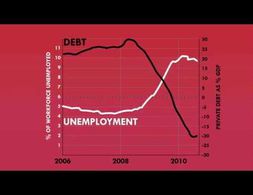617 Ergebnisse
MERCOSUR (Mercado Común del Sur or Common Southern Market) was the first formalized attempt to integrate South American countries economically and politically.
This course introduces students to the relevance of gender relations in economics as a discipline and in economic processes and outcomes. The course covers three main components of gender in economics and the economy: (1) the gendered nature of the construction and reproduction of economic theory and thought; (2) the relevance and role of gender in economic decision-making; and (3) differences in economic outcomes based on gender. We will touch on the relevance of gender and gender relations in at least each of the following topics: economic theory; the history of economic thought; human capital accumulation; labor market discrimination; macroeconomic policy, including gender budgeting; household economics; basic econometrics; economic history; and economic crises.
Pluralism includes mainstream economics. Our campaign for pluralism, including this series, have generally focused on ideas outside the mainstream on the basis that it gets plenty of attention already so we want to spend our time exposing people to alternatives. Nevertheless, mainstream ideas deserve some attention. On top of this, a curious feature of modern economics education is that some of the best ideas from mainstream economics are not even taught to undergraduates! During this series I will explore such ideas, starting today with the market construction technique known as ‘matching’.
In this essay the authors take a look at how welfare could be provided in a degrowth society.
This course introduces students to the relevance of gender relations in economics as a discipline and in economic processes and outcomes. The course covers three main components of gender in economics and the economy: (1) the gendered nature of the construction and reproduction of economic theory and thought; (2) the relevance and role of gender in economic decision-making; and (3) differences in economic outcomes based on gender. We wil touch on the relevance of gender and gender relations in at least each of the following topics: economic theory; the history of economic thought; human capital accumulation; labor market discrimination; macroeconomic policy, including gender budgeting; household economics; basic econometrics; and economic crises.
This is an overview of (possibly transformative) proposals to address the economic consequences of the corona crisis
Complexity economics focuses on interactions and interdependencies between individuals and structures in economic systems. Those are systems of organised complexity. High importance is given to the analysis of networks.
Der Fokus der Komplexitätsökonomik liegt auf den Interaktionen und Wechselwirkungen zwischen Individuen und Strukturen wirtschaftlicher Systeme. Diese werden als Systeme organisierter Komplexität aufgefasst. Ein besonderes Augenmerk liegt auf der Analyse von Netzwerken.
An essay of the writing workshop on Nigeria’s Readiness for and the Effect of the Fourth Industrial Revolution
After a brief illustration of sovereign green bonds’ features, this paper describes the market evolution and identifies the main benefits and costs for sovereign issuers. The financial performance of these securities is then analysed.
Part I: Basic Economic Problems Is Economics a Science? Is It Useful? (Lawrence Boland, Ian Parker) Is There Such a Thing as a Free Market? (William Watson, Robert Prasch) Part II: Consumers and Firms Is Homo Economicus an Appropriate Representation of Real-World Consumers? (Joseph Persky, Morris Altman) Is the Consumer Sovereign?
With the onset of an economic crisis that has been universally acknowledged since the end of March, two main questions arise: To what extent is the corona pandemic the starting point (or even the cause) of this crisis? And secondly: can the aid programmes that have been adopted prevent a deep and prolonged recession?
Social and Solidarity Economy (SSE) and Feminist Economics make a conjoint statement: The way we see the economic system has nothing to do with human beings nor those who have been surviving outside the market.
The dominant view of inflation holds that it is macroeconomic in origin and must always be tackled with macroeconomic tightening. In contrast, we argue that the US COVID-19 inflation is predominantly a sellers’ inflation that derives from microeconomic origins, namely the ability of firms with market power to hike prices.
Hannes Vetter hat sich in Rahmen der Schreibwerkstatt "Varieties of Mainstream Economics?" mit der Evaluation der Bewertung von Umwelt in neoklassischen Makromodellen auseinandergesetzt.
Feminist economist Nancy Folbre presents a historical analysis of the interrelated development of Patriarchy and Capitalism. She describes the role of women in the reproduction of labour, their “specialization” in care and their changing involvement in the labour market. Folbre argues that capitalism weakens patriarchy but at the same time relies on unpaid caring activities.
Smith contends that there is no possible solution to our global ecological crisis within the framework of any conceivable capitalism. The only alternative to market-driven planetary collapse is to transition to a largely planned, mostly publicly-owned economy based on production for need, on democratic governance and rough socio-economic equality, and on contraction and convergence between the global North and South.
Economics After the Crisis is an introductory economics textbook, covering key topics in micro and macro economics. However, this book differs from other introductory economics textbooks in the perspective it takes, and it incorporates issues that are presently underserved by existing textbooks on the market. This book offers an introduction to economics that takes into account criticisms of the orthodox approach, and which acknowledges the role that this largely Western approach has played in the current global financial and economic crisis.
In this searing and insightful critique, Adrienne Buller examines the fatal biases that have shaped the response of our governing institutions to climate and environmental breakdown, and asks: are the 'solutions' being proposed really solutions? Tracing the intricate connections between financial power, economic injustice and ecological crisis, she exposes the myopic economism and market-centric thinking presently undermining a future where all life can flourish.
After completing the module, participants should be able to understand the economic consequences of gender inequality. They should be able to explain the contradictions between capital and care, analyze the labor market with a gender perspective and develop the ability to describe phenomena such as public policies taking into account "gender" as a category of analysis.
Economics should schematically explain the key elements and main strands of this core part of social life: the actual workings of our economies. This book argues that orthodox, modern neoclassical economics does not fulfil this core task. Standard economics models do not address the real functioning of our market economies, but rather an imagined economy.
Jens Beckert and Richard Bronk, authors of "Uncertain Times", explore the extent to which flaws, blind spots and more importantly bias created by macroeconomics models, based on forecasts and statistical devices, shape crisis and the market economy in which we live.
This book arose from our conviction that the NNS-DSGE approach to the analysis of aggregate market outcomes is fundamentally flawed. The practice of overcoming the SMD result by recurring to a fictitious RA leads to insurmountable methodological problems and lies at the root of DSGE models’ failure to satisfactorily explain real world features.
This book presents recent thought on market efficiency, using a complex systems approach to move past equilibrium models and quantify the actual efficiency of markets.
Understanding the American stock market boom and bust of the 1920s is vital for formulating policies to combat the potentially deleterious effects of busts on the economy.
Debunking Economics - Revised and Expanded Edition exposes what many non-economists may have suspected and a minority of economists have long known: that economic theory is not only unpalatable, but also plain wrong. When the original Debunking Economics was published back in 2001, the market economy seemed invincible, and conventional "neoclassical" economic theory basked in the limelight.
This book sets out to encourage a debate about the role that economic theory and philosophy of economics can play. A good part of economics consists of theoretical developments which describe completely imaginary worlds and have no connections to actual market economies
An analysis of the modern neoliberal world, its characteristics, flaws and planetary boundaries aiming to end new economic politics and support a global redistribution of power, wealth and roles.
In this online lecture, economist and Professor at the School of Oriental and African Studies (SOAS), London, UK. Costas Lapavitsas, explains the limitations of the neoliberal market in creating financial stability and growth in both, developing and developed countries.
Post-Keynesians focus on the analysis of capitalist economies, perceived as highly productive, but unstable and conflictive systems. Economic activity is determined by effective demand, which is typically insufficient to generate full employment and full utilisation of capacity.
Global Value Chains (GVCs) started to play an increasing and key role in the global economy from the 1990s on. The market mechanism in GVCs supports industrialisation in the Global South and under certain conditions product and process upgrading. But GVCs do not lead to the catching-up of countries in the sense of them approaching real GDP per capita levels comparable with developed countries. These arguments are supported by a critical interpretation of the traditional trade theory, the New Trade Theory and specific approaches to explain GVCs, especially different governance structures and power relationships. Several case studies support these arguments. For catching-up, countries need comprehensive horizontal and vertical industrial policy and policies for social coherence. The small number of countries which managed to catch up did this in different variations.
Banking 101 is a series of 6 short videos that ask the following questions: How do banks work and how is money created? Is reveals common misunderstandings of money creation and the role of banks. Furthermore, the videos show how models taught in many introductory classes to economics (Econ 101) do not reflect those processes:
Part 1) “Misconceptions around Banking” questions common comprehensions of how banks work (savings = investments).
Part 2) “What's wrong with the money multiplier” states that the model of the money multiplies is inaccurate.
Part 3) “How is money really made by banks” explains the process of money creation, loans and inter-bank settlement.
Part 4) “How much money banks create?” asks what limits the money creation by banks and presents the difference between reserve ratio, liquidity ration, equity and refers to the inter-bank market.
Part 5) Explores the question if banks create money or just credit and especially refers to credit risks.
Part 6) Explains how money gets destroyed when loans are paid back.
Note: The videos refer to the UK monetary and banking system, some explanations don't apply to other banking systems, e.g. the reserve ratio.
Banking 101 is a series of 6 short videos that ask the following questions: How do banks work and how is money created? Is reveals common misunderstandings of money creation and the role of banks. Furthermore, the videos show how models taught in many introductory classes to economics (Econ 101) do not reflect those processes:
Part 1) “Misconceptions around Banking” questions common comprehensions of how banks work (savings = investments).
Part 2) “What's wrong with the money multiplier” states that the model of the money multiplies is inaccurate.
Part 3) “How is money really made by banks” explains the process of money creation, loans and inter-bank settlement.
Part 4) “How much money banks create?” asks what limits the money creation by banks and presents the difference between reserve ratio, liquidity ration, equity and refers to the inter-bank market.
Part 5) Explores the question if banks create money or just credit and especially refers to credit risks.
Part 6) Explains how money gets destroyed when loans are paid back.
Note: The videos refer to the UK monetary and banking system, some explanations don't apply to other banking systems, e.g. the reserve ratio.
Wir nutzen Cookies. Klicke auf "Akzeptieren" um uns dabei zu helfen, Exploring Economics immer besser zu machen!






























